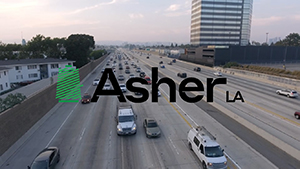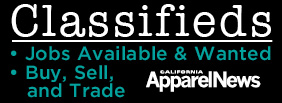Key Buyers at Abbreviated ASR, Fashion-Focused Agenda
Going into it, no one expected the Action Sports Retailer Trade Expo, held Jan. 22–24 in San Diego, to be business as usual. (For more from ASR and Agenda, click here.)
A month before surf/skate brands and buyers convened at the San Diego Convention Center for the biannual show, news broke that key brands had dropped out of the show entirely or opted for the no-hype, all-business meeting rooms off the show floor. Lackluster sales also promised to take a bite out of retailers’ travel and buying budgets.
According to show officials, there were 30 to 40 fewer brands represented on the show floor. The show floor itself shrank. Missing from the show floor were regulars Split, Hot Tuna, MCD, MADA, Etnies, RVCA, Electric Visual, Gravis, Burton and others. Volcom, which traditionally represents one of the larger players on the show floor, reduced its footprint by half and opted for a hillbilly theme. The enormous space usually occupied by Quiksilver and its brands was filled with a giant ramp. Adio, Reef, Rip Curl, DC, Element Eden and O’Neill met with buyers in private meeting rooms off the floor. DC in particular made the most of its meeting-room space, occupying multiple rooms and shipping Immediates orders as they were written.
While ASR’s smaller presence did seem to faze some, the overall mood remained upbeat. “It’s funny. The perception of ’doom and gloom’ for the entire industry that was seemingly described by all going into the show really just needed to be vetted a bit. Turns out, after some investigation, people were prematurely basing the fortunes of the entire industry on the well-chronicled problems with a few of the top public-company players,” said attorney Greg Weisman, chairman of Silver & Freedman’s apparel practice group. “Everyone knows about Quik’s stock price, the fact that they and other big players were not at the show, the exodus of top executives, and all the attendant rumors about third-party suitors for various sub-brands, but the real story was the tremendous opportunity for the well-capitalized privately held brands, who are poised to take market share and who shared, almost embarrassingly, that sales were actually up in 2008 for them.”
And though attendance was down at ASR, exhibitors reported meeting with key buyers ready to work lines and write paper. WeSC, which had decamped to Agenda in previous seasons, returned to ASR with a newly reconfigured line. “The Fall 2009 collection is much more segmented than ever before,” said Eric Ruhle, the brand’s U.S. sales manager. Divided by price into three tiers, WeSC’s collection focuses on the core market, streetwear and premium apparel. To make it competitive in the core market, WeSC dropped its opening price points by approximately $5. The premium tier, which Ruhle said would sell to specialty stores, includes suits and leather jackets that wholesale for $280.
Exhibitors reported cautious buying heavy on Immediates and said while some stores were sticking to key brands that sell on name recognition, others seemed to be reaching out to smaller independent brands for a dose of newness. The Goldbox, ASR’s platform for upstart brands, was smaller this season, but booths there garnered their fair share of buyer interest.
Newness also came to ASR in the form of unlikely exhibitors. Huntington Beach, Calif.–based print, design and fabrication company AOSA erected an educational booth aimed at opening a dialogue with attendees about sustainable options for trade-show booths and in-store signage. AOSA creates both sustainable and recyclable materials such as fabrics made from water bottles, metal, wood and glass. AOSA, which specializes in water-based inks that can be used to print on all manner of signage or promotional materials as well as surfboards and skateboards, will return to the next ASR, according to Director Michael Hill.
Agenda Welcomes Fashion
Agenda, known for its streetwear roots, welcomed a handful of new fashion-minded brands to its Jan. 22–24 edition at the San Diego Concourse.
House of Cassette, a fashion brand out of Los Angeles, showed at Agenda for the first time. Founder/designer Peter James Lee said that while Cassette’s pricing is significantly higher than most of Agenda’s other brands, a percentage of the show’s buyers is viable for him. “A year and a half ago, I never would have thought to show here. But with so many specialty stores closing their doors, now we have to look for other avenues to make up the difference,” Lee said. “We’re backing into ’skate contemporary’ because 5 percent to 7 percent of those stores are viable for us.” The brand—which sells at retailers such as American Rag, Barneys New York, Atrium and Barracuda—lowered its price points for Fall 2009, making it a little easier to grasp for the skate/street market. Denim, for example, which previously wholesaled for $90 to $130, now wholesales for $80 to $110.
Cody Debacker of Grn Apple Tree said he liked the addition of Cassette and other brands—including Ludwig, Comune, Insight and Mosley Tribes—that upped Agenda’s fashion ante. “It’s a tighter show, but it is also a better show because there are better brands. I’m happy to see some of the upstart T-shirt brands heading out and more top brands heading in,” Debacker said.
Comune, a new fashion-focused brand born out of the skate industry, made its debut at Agenda. With a tagline of “Something better change,” the brand appealed to buyers with its trend-right pieces at a price. A faux-leather perforated jacket in maroon, plaid flannel shirts and graphic T-shirts earned buys from core shops looking to up their fashion offerings.
Jesse Faen, president of Insight USA, said the move to Agenda paid off for the brand. “Insight made the move to Agenda for a number of reasons hellip; and it proved to be the right call,” he said. “We opened dialogues with key accounts—from small ones to the largest across the USA and beyond. The working environment was great, as all the people there seemed genuinely passionate about the industry and ready to talk business.”
Aaron Levant, founder of Agenda, said despite a slightly smaller exhibitor roster, this show was one of his best ever for order-writing. “There is less riff-raff, fewer hangers-on. There were less people, but those who came sat down and did business,” he said. “There was no party feel. It was a very business-oriented show.”


























